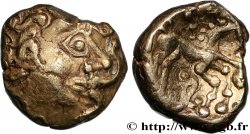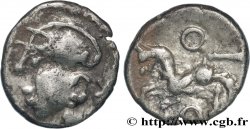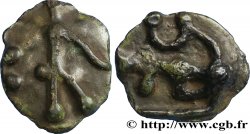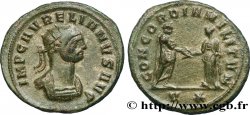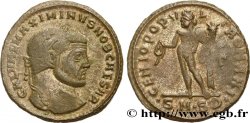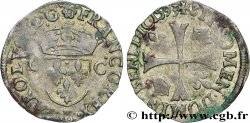E-auction 61-28218 - bga_193651 - EDUENS, ÆDUI (BIBRACTE, Area of the Mont-Beuvray) Denier DOVBNO
You must signin and be an approved bidder to bid, LOGIN TO BID. Accounts are subject to approval and the approval process takes place within 48 hours. Do not wait until the day a sale closes to register. Clicking on « bid » constitutes acceptance of the terms of use of cgb.fr private e-auctions.
Bids must be placed in whole Euro amounts only. The sale will start closing at the time stated on the item description; any bids received at the site after the closing time will not be executed. Transmission times may vary and bids could be rejected if you wait until the last second. For further information ckeck the E-auctions F.A.Q.
NO BUYER'S FEE.
NO BUYER'S FEE.
| Estimate : | 150 € |
| Price : | 54 € |
| Maximum bid : | 71 € |
| End of the sale : | 16 June 2014 15:08:00 |
| bidders : | 11 bidders |
Type : Denier DOVBNO
Date: c. avant 52 AC.
Mint name / Town : Autun (71)
Metal : silver
Diameter : 12,5 mm
Orientation dies : 6 h.
Weight : 1,94 g.
Rarity : R2
Coments on the condition:
Droit décentré avec le visage en bord de flan, mais revers complet et particulièrement net avec la légende parfaitement bien venue. Patine grise
Catalogue references :
Obverse
Obverse legend : ANÉPIGRAPHE.
Obverse description : Tête à gauche, réduite au cou et au torque à cause d’une frappe incuse de revers.
Reverse
Reverse legend : VNO.
Reverse description : Cheval galopant à droite ; légende au-dessus et entre les jambes ; grènetis.
Reverse legend : DW
Commentary
Ce type précis est souvent confondu avec les deniers DIASVLOS ; les auteurs du Nouvel Atlas ont fort justement distingué ces rares deniers sous la série 908 de leur Tome III, sans toutefois s’attarder sur les très différentes épigraphies.
Sur cet exemplaire, au droit, on devine le grènetis d’une seconde empreinte ; ce qui confirme l’utilisation d’un coin de droit à empreintes multiples (comme c’est le cas pour de nombreux deniers de l’est de la France et particulièrement les deniers ANORBO DVBNO).
Pour toutes les variantes d'épigraphies sur cette série de deniers, voir la plaquette réalisée en 1867 par F. de Saulcy, "Monnaie du Vergobret éduen DIVITIACVS".
Sur cet exemplaire, au droit, on devine le grènetis d’une seconde empreinte ; ce qui confirme l’utilisation d’un coin de droit à empreintes multiples (comme c’est le cas pour de nombreux deniers de l’est de la France et particulièrement les deniers ANORBO DVBNO).
Pour toutes les variantes d'épigraphies sur cette série de deniers, voir la plaquette réalisée en 1867 par F. de Saulcy, "Monnaie du Vergobret éduen DIVITIACVS".







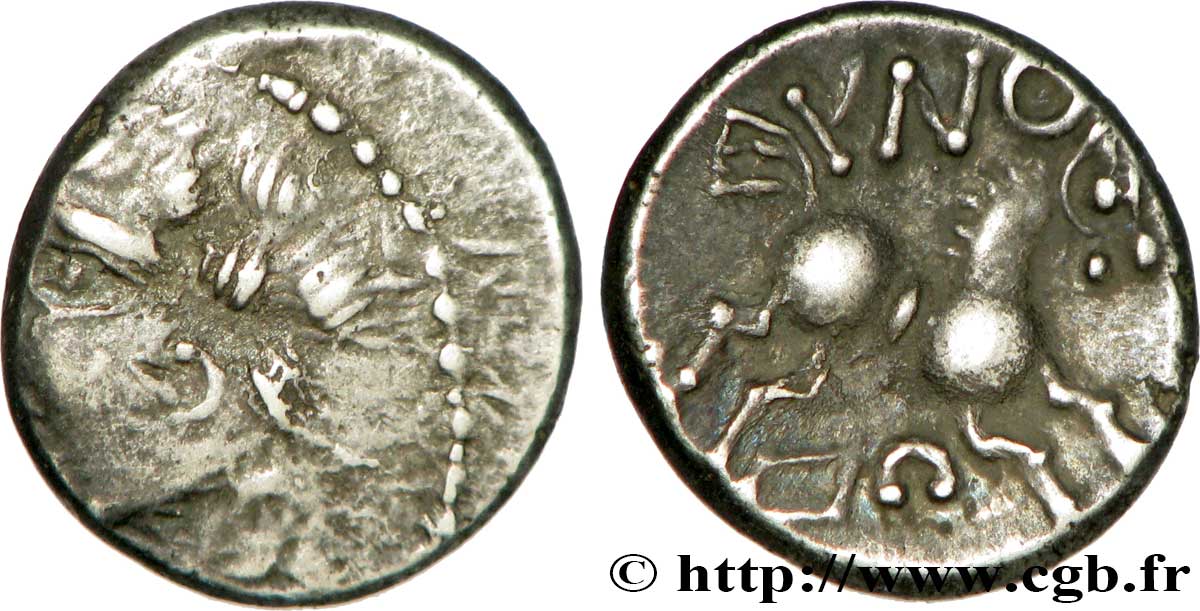
 Report a mistake
Report a mistake Print the page
Print the page Share my selection
Share my selection Ask a question
Ask a question Consign / sell
Consign / sell
 Full data
Full data